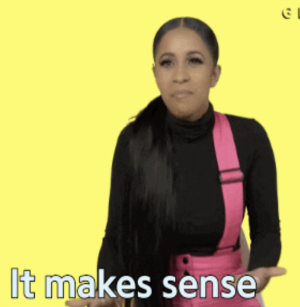How to write simply
In this post, I will tell you how to write clearly and simply.
Vidia Naipaul’s 7 rules.
Moses found God’s Ten Commandments on Mount Sinai. I found Vidia Naipaul’s Seven Commandments in an article written by Amitava Kumar.
Thou shalt...
- "Not write long sentences. A sentence should not have more than 10 or 12 words.
- Make a clear statement in each sentence. Each sentence should add to the statement that went before. A good paragraph is a series of clear, linked statements.
- Not use big words. If your computer tells you that your average word is more than five letters long, there is something wrong. The use of small words compels you to think about what you are writing. Even difficult ideas can be broken down into small words.
- Never use words whose meanings you are not sure of. If you break this rule you should look for other work.
- Avoid using adjectives, except those of colour, size and number. Use also as few adverbs as possible.
- Avoid the abstract. Always go for the concrete.
- Every day, for six months at least, practice writing in this way.”
If you want to see how this looks like, read any random page from Naipaul’s masterpiece, ‘Half a Life’.
Easier said than done, mate
Naipaul received the Nobel Prize in Literature. Telling you to read his advice and write like him is like telling you to take the online Master class by Stephen Curry and then try to play in the NBA. Curry makes it look easy. But good writing, like good basketball, is not easy. Writing is hard. It takes practice – hundreds, nay thousands, hours of your time to perfect the beat. The first step though is to know where you want to get.
We academics do not always know. We read papers by other academics that use complex prose and we think we have to write like them. We inflate to sound important, we use long words to say simple things. As William Zinsser puts it, we turn ‘a slum into a depressed socioeconomic area, garbage collectors into waste-disposal personnel and the town dump into the volume reduction unit”.
Start with clear thinking
Einstein once said that if you can’t explain something simply, then you don’t understand it well enough. Actually, it turns out he didn’t say this, as he hasn’t said most of the Internet memes attributed to him. (If Einstein had spent his time dishing out words of wisdom he would be a spiritual guru, not a physicist.)
Whoever said it though, had a point. Clear writing starts with clear thoughts. Always begin by asking yourself what you are trying to say. You probably don’t know, and you write in order to see what it is you want to say. Fair enough. Look back at what you wrote and ask: have I really said what I wanted to say? Be frank with yourself. ‘The clear writer is someone clearheaded enough to see their stuff for what it is: fuzz’, Zinsser says.
Declutter your paper
If you have time to read only one book on writing, read William Zinsser’s On writing well. Zinsser was a journalist and a non-fiction writer – but what he has to say speaks to all of us (all quotes that follow are from his book).
Like Marie Kondo who wants you to declutter every room of your house, Zinsser wants you to declutter every sentence of your text. ‘Writing’, he claims, ‘improves in a direct ratio to the number of things we can keep out of it that shouldn’t be there’. He wants out ‘every word that serves no function, every long word that could be a short word, every adverb that carries the same meaning that’s already in the verb, every passive construction that leaves the reader unsure of who is doing what’.
Take out the laborious phrase and substitute it with the short word it pushed out. ‘At this point in time’ or ‘at this juncture of maturization’ is simply ... ‘now’. Write that ‘it is raining’; not that ‘at the present time the region experiences precipitation’.
Be attentive to jargon that just throws dust in the eyes of your reader. Write ‘help’, not ‘assistance’; ‘man or woman’, not ‘individual’; ‘try’, not ‘attempt’; ‘called’, not ‘referred to as’. Do this, and you might keep your average word length below five letters, as Master Naipaul asked you to.
Do things and let your reader see that you are doing them; don’t tell them that you are doing them. Eliminate all the ‘It should be pointed out’, ‘In this section I am going to argue’, ‘It is interesting to note’ etc. Just point out your argument and make it interesting.
Don’t inflate what needs no inflating. ‘With the possible exception of’ means ‘except’. ‘Due to the fact that ’ means ‘because’. ‘For the purpose of’ means ‘for’.
Avoid passive structures. ‘Use active verbs unless there is no comfortable way to get around using a passive verb’. Write ‘Joe saw him’, not ‘he was seen by Joe’. Choose precise verbs, and specify the pronoun. An atrocity was perpetrated does not tell us who did what to whom. Avoid having concepts doing nasty things to other concepts. Tell us instead what one person did to another using your concept.
Zissner says that you should never say anything in writing that you wouldn’t comfortably say in conversation. My colleague Dan O’Neill told me that he reads his drafts out loud to hear what doesn’t work. When I explain something over email I write it much better than when I write it for a paper. In an email I write as if I speak to someone and this makes my text simple.
Keep your text free of unnecessary decoration. Spare your use of adverbs. Most of them are unnecessary. ‘Strong verbs are weakened by redundant adverbs’, Zissner says. Consider for example something like ‘effortlessly easy’. There are also the redundant verbs that carry the same meaning as the verb – e.g. ‘smile happily’. And all the ‘decidedly’ and ‘crucially’ that we academics use to basically say nothing.
But do use adverbs, when they do work. I can’t take ‘simply’ out of ‘how to write simply’ like I cant take ‘well’ out of ‘On writing well’. These adverbs are necessary.
Follow the same approach with adjectives. Most of the time the concept is already in the noun. Use adjectives only if the information is vital for your argument, not as decoration. Call a transformation radical if we really need to know that it is radical, and if you plan to explain to us what you mean by radical. Tell us that a research field is burgeoning if this is true, and if you are really going to argue something about the growth of this field, not just to pump up the importance of what you happen to be working on.
Check carefully all the little qualifiers - all the ‘quite’, ‘very’, ‘a little’, ‘sort of’ etc. Take them out unless you really want to achieve emphasis. If you want to make a quantitative argument, tell us precisely or roughly how much, not that it was ‘a lot’ or ‘pretty much’.
Editing clutter out
‘Writing is hard work’, Zissner tell us. ‘A clear sentence is no accident. Very few sentences come out right the first time, or even the third time’.
You will never get a clean sentence in your first try. Start by thinking as clearly as you can. Say out loud what you want to say (record yourself if need be). Write it. And then edit, edit, edit.
‘Here is an example of how Zinsser edited his own book on writing well.
In the workbook I prepared for you this week, I share some of the ways I have developed over the years to edit my texts. I use examples from my own work and offer a checklist of what to pay attention to when editing.
Editing is like cutting and pruning a jungle, turning it into a garden. It is not easy. I would be a fool to say that I have mastered editing like a Naipaul or a Zissner. But I use a process that might be useful for you.
Professeur Foucault, this does not apply to you, Sir
A student told me once that all this is very American. French philosophers like Michel Foucault do not write this way.
If you are confident that you are the next Michel Foucault, and that your complex sentences are not because your ideas are fuzzy, but because they are truly complex, then be my guest and write like him. In the slim chance that you are not Foucault though, you might want to listen to my advice.
To be serious: yes, there is a difference between writing in English and writing in Latin languages, or for that matter, my native Greek. In Greek or Spanish we write long, one-paragraph sentences. Like Roman or Athenian orators, we embellish our statements with ornaments and passionate sidetracks before we get to the point. English, and especially American writers go straight to the meat of the matter – they say what they want to say. For good or for bad, most international peer-reviewed journals are now in English. We have to write good English, not Greek or Spanish translated into English.
Sure, if you are philosopher or a theorist, words are your tools, like math are the tools of an engineer. Philosophers like Wittgenstein write about theories doing things to other theories - you wouldn’t ask them to write only about people doing things to other people (though I really appreciate philosophers like Cornelius Castoriadis, who make the extra step to communicate their scholar work in everyday language as well).
Social theorists create novel ideas by rearranging words. Or they invent new concepts with new words. In political ecology, we talk of ‘socionatures’, ‘glocal’ dynamics or ‘commodity fetishism’. These are terms that if you are a political ecologist make sense to you, because you have learned what they mean. If you communicate to other political ecologists, you can use these terms – though I would hold to the principle of using everyday language whenever you can and only exceptionally, opt for jargon. Be sure that complexity is not there to hide fuzziness and that you really know what the jargon you use means. And check that what it means to you means the same to those likely to read your text.
For the record, I really prefer Foucault’s latest books that he wrote while in Berkeley. They are easier to get than his early ones, without loss in depth or rigour. Joking or not, Foucault once shared that he loved Americans because they ask him what they want to ask, unlike his native French whose questions are full of allusions, traps and political references.
I agree. Don’t hide behind words. Say what you want to say. Write simply. Write clearly. Write well.
Do you have any additional tips for simplifying your writing? Leave your comments below!
















